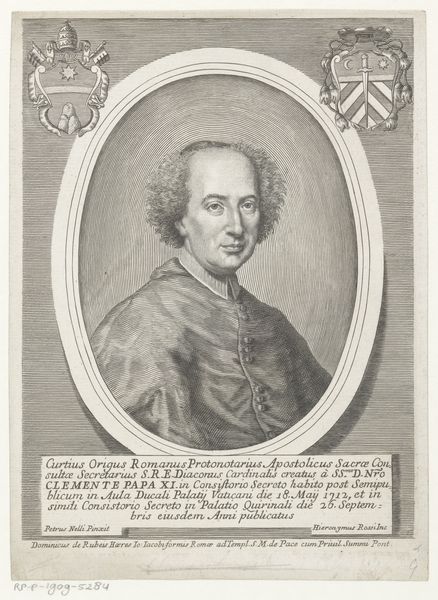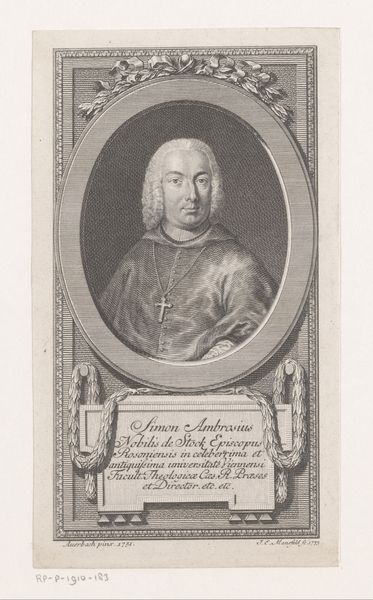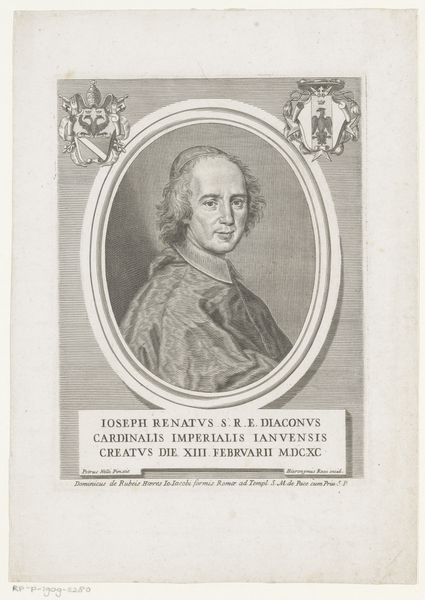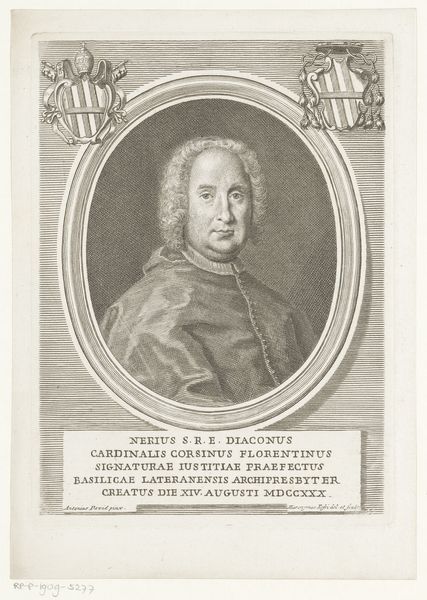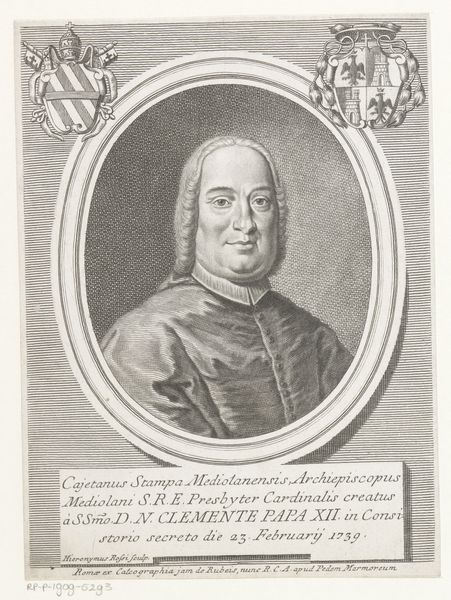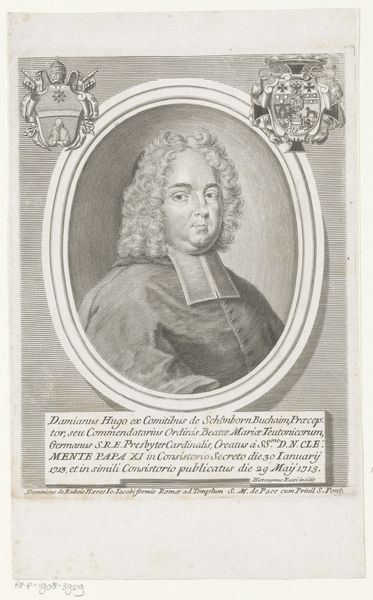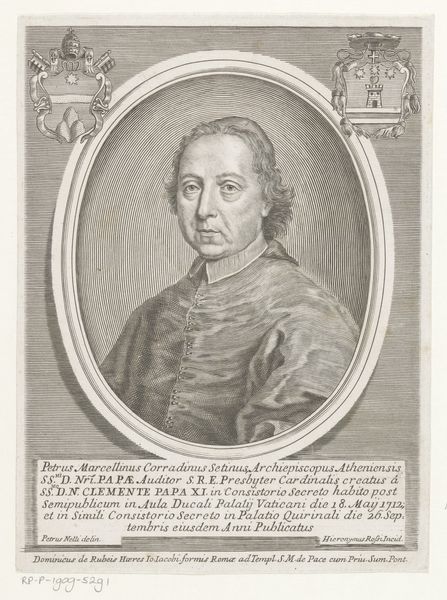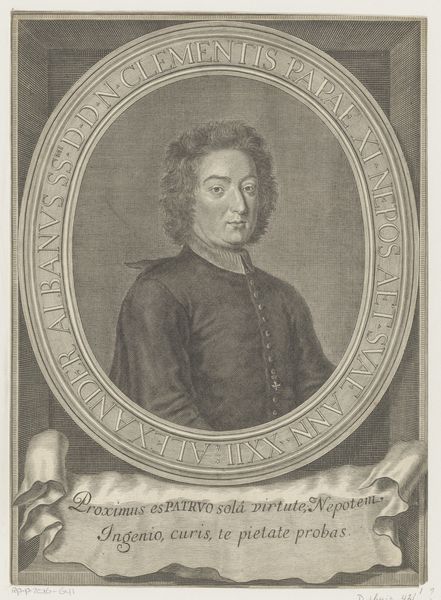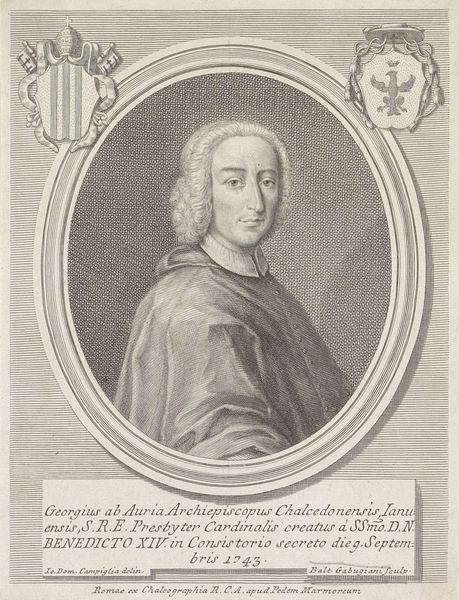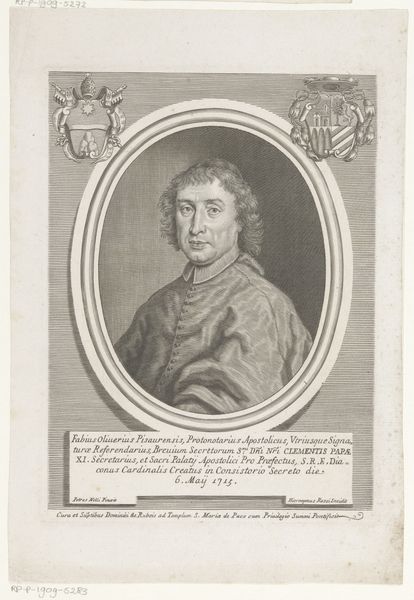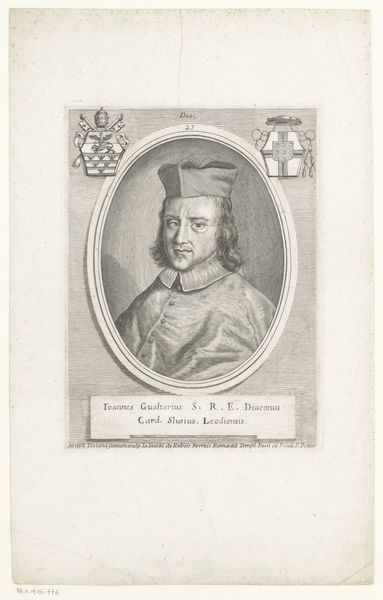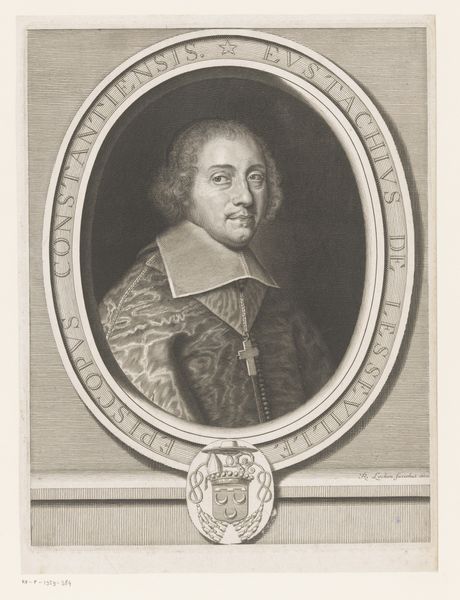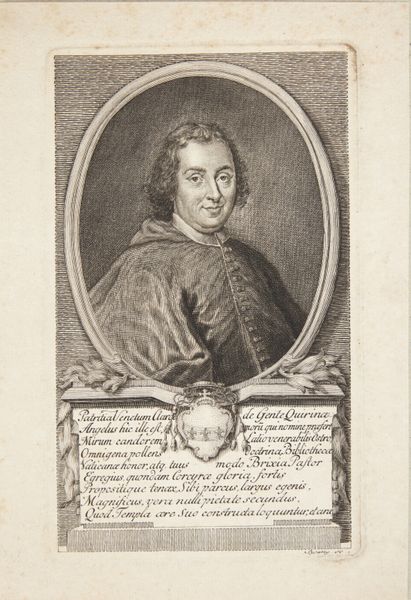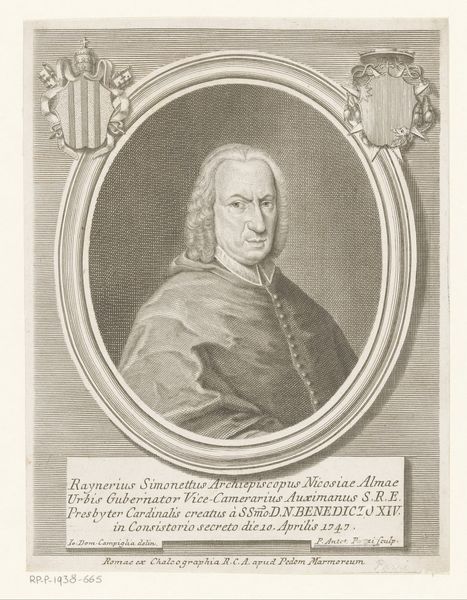
engraving
#
portrait
#
baroque
#
old engraving style
#
history-painting
#
academic-art
#
engraving
Dimensions: height 224 mm, width 165 mm
Copyright: Rijks Museum: Open Domain
Editor: So, this engraving is a portrait of Cardinal Alessandro Albani, likely created sometime between 1721 and 1762. It’s attributed to Girolamo (II) Rossi and held at the Rijksmuseum. There's a formality to it, a sense of carefully constructed power. What does this portrait reveal to you? Curator: The portrait offers a glimpse into the socio-political structures of the 18th century. Consider the visual language: the Cardinal framed within an oval, flanked by heraldic emblems – these weren't merely decorative. They signaled lineage, authority, and the institutional power of the Church. Editor: How did those emblems function, practically? Curator: They publicly reinforced the Cardinal's status within the Roman Catholic hierarchy. Prints like these were often circulated, performing a vital role in constructing and disseminating the images of power. The engraver, Rossi, and the publisher, Domenico de Rubeis, were key players in this process. Editor: So it’s not just a likeness, but a statement? Curator: Precisely! It highlights the carefully crafted visual propaganda integral to maintaining social order and solidifying power during the Baroque era. Did this change how you saw the engraving? Editor: Absolutely. It adds a layer of calculated performance to what I initially perceived as simply a formal portrait. There's so much communicated beyond just physical features! Curator: Indeed. Examining the print in this way offers insights into the mechanisms of image-making and the cultural landscape in which the Cardinal wielded influence.
Comments
No comments
Be the first to comment and join the conversation on the ultimate creative platform.
